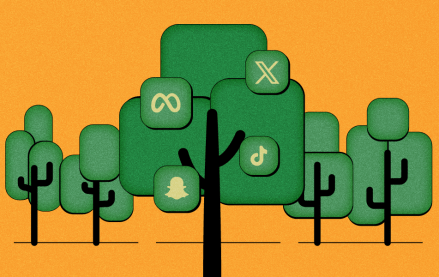
Since summer’s unofficially over, it’s pouring today. Thanks for easing us into this, controller of the clouds. Here are today’s links, in case you missed them.
Apparently Twitter is having an identity crisis, most likely as it weighs whether or not it will file an IPO. Similar to other media companies, it is having some difficulty figuring out how to maintain free speech while also turning a profit. Seems to that the company’s chief lawyer has his work cut out for him. (New York Times)
Like most everyone else, I love to hate cable. I tried going without it, but relying on my neighbors’ WiFi was agonizing. The thing is, between Apple TV and Netflix, I’m not sure why I keep shelling out money each month for the cable provider my apartment building chose for me just to watch the one or two channels I actually want. I know I’m not alone; fans of HBO Go are always asking when they’ll ditch their partnerships with the cable companies (Wired).
Once again, the Democrats and Republicans are engaged in a war of words. Though both claim to be in favor of Internet freedom, apparently (or unsurprisingly, really) the two parties have come to disparate understandings of what this means. It really all comes back to the Constitution and what the First Amendment means. What’s next? (CNET)
It’s not really surprising that a site meant as a practical joke machine now provides fake news, but it’s pretty depressing that the line between fact and fiction are becoming so blurred. With everyone now a journalist thanks to Twitter and Facebook, we all want to get the news out there first, whether it’s correct or not. And that goes for legit news producers as well — how many different reports did we hear about the Empire State Building shooting? (Forbes)
I’m not surprised that the New York Times posted a piece about the problems of the Facebook IPO — and what the company’s CFO did wrong. But in response, Mark Cuban argues that he actually did precisely what he was supposed to do — make the company money. Fair point. And besides, if Google’s history is any indication, Facebook isn’t going anywhere (Gizmodo).
More in Marketing

The case for and against organic social
Digiday has delved into the debate, weighing the arguments for and against marketers relying on organic social.

Inside Google’s latest move to postpone the cookie apocalypse
Despite Google’s (most recent) assurances that it would stick to its (newest) game plan, there has been a lot going on as of late.

While Biden signs the TikTok bill, marketers still aren’t panicking
No one seems convinced (yet) that an outright ban will happen anytime soon.





